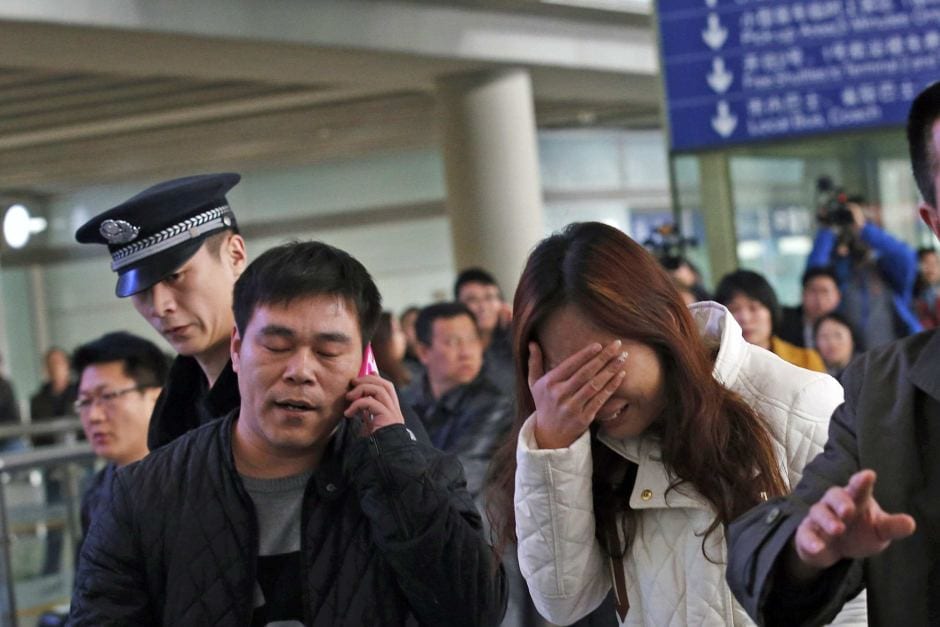Let’s face it, it is almost impossible to shield children from negative world events. In our ever-connected society, breaking news stories reach far beyond the evening news. All too often, these tragic stories involving mass casualties are catapulted for days across radio, television, newspapers and become the topic of conversation for many. We see this with any major domestic or international story, just as we’re seeing now with the shooting down of Malaysian Airlines flight MH17.
 As adults, these heartbreaking stories often take an emotional toll on us. Some make us cry, others evoke anger or frustration. For children however, these reactions can be far more complex. Children may withdraw, become easily irritable, experience decreased appetite or have nightmares. Even worse, some children can develop strong responses to locations that remind them of these tragedies (i.e. an airplane, school, etc.) and experience an aversion to these locations. But why do children react so much differently than adults?
As adults, these heartbreaking stories often take an emotional toll on us. Some make us cry, others evoke anger or frustration. For children however, these reactions can be far more complex. Children may withdraw, become easily irritable, experience decreased appetite or have nightmares. Even worse, some children can develop strong responses to locations that remind them of these tragedies (i.e. an airplane, school, etc.) and experience an aversion to these locations. But why do children react so much differently than adults?
The difference lies in our ability to process information. There are a few important differences in the way adults and children receive and process the information on the news. When adults hear about a tragedy such as MH17, they are able to identify this as an isolated incident occurring as a product of the Ukrainian-Russian tensions. In other words, adults are able to receive the story in context. Children, however, do not yet possess the ability to do so. This means a child isn’t automatically able to identify the event as isolated or interpret the event’s context to better understand the cause. In other words, a child may likely feel that this event could happen to any airplane at any time.
If left uncorrected, this belief can lead a child to develop anxiety surrounding planes or flying. Additionally, adults do not typically re-experience the event as new every time it is mentioned on the news. In fact, we do quite the opposite by becoming increasingly numb to the information over time. The same is not true for children, who are likely to hear every news report as if the event is occurring over and over. Anytime an event like MH17 occurs, it is important to be aware of the way your child is receiving the information. The only way to do this is by talking to them.
The good news is – talking to children about tragic events does not have to be complicated. Here are a few tips that can help you facilitate the conversation with your child:
1) When you notice the information being broadcast around your child, ask them what they feel about hearing the information. It’s completely normal for a child to say “nothing”, so do not try to press for an emotional response if the child doesn’t immediately offer one. You can also ask the child if they want to ask any questions about the event. This lets the child know that you’re available and open to talking with them about the event. If the child doesn’t express any feelings or questions about the event, a simple explanation of the information should be sufficient.
2) If the child asks questions, respond to them honestly and in a way they will understand. If your child asks why flight MH17 crashed, provide a basic but honest response. Often, a question such as “why did the plane crash” is really the child asking “can the same thing happen to me on a plane?” Be sensitive to what the child is really asking and tailor your response appropriately.
3) Follow-up with your child. A day or two after talking to your child about a tragic event, let them know that you’re still available to talk if they have any other questions. Children often privately reflect on the things they experience. Checking in a few days after explaining the event to the child allows an opportunity to address any new questions the child may have. Processing news of traumatic events is crucial for helping our children understand these events.
It’s a good learning opportunity for the child and provides a great opportunity for bonding in a meaningful way.
References:
Haelle, Tara. “Children exposed to traumatic news events need parents to help them process feelings.” dailyRx, December 17, 2012. Available at: https://www.dailyrx.com/children-exposed-traumatic-news-events-need-parents-help-them-process-feelings




